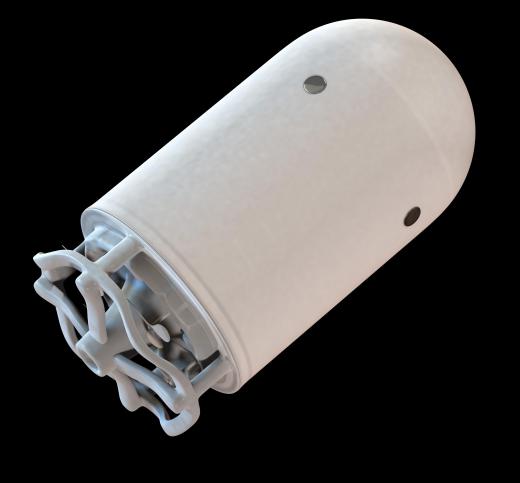What is the Difference Between Nanotechnology and Molecular Nanotechnology (MNT)?
The difference between nanotechnology and molecular nanotechnology (MNT) is that the former is now used to refer to any science that deals with nanoscale particles of 1 to 100 nanometers, while the latter refers specifically to theories of nanoscale machines capable of building products from the atom up, also called molecular manufacturing (MM).
A nanometer, which is one millionth of a millimeter or one billionth of a meter, is an incredibly small measure of length only about five to seven atoms in size. The general term "nanotechnology" deals with structures that are measured in nanometers. A bacterium by comparison is much larger. Fullerenes or carbon nanotubes, however, as discovered by Richard Smalley of Rice University, fall under the purview of nanotechnology.

The term, "nanotechnology" was not always used so broadly. It was coined by K. Eric Drexler in his 1986 book, Engines of Creation to refer to his theories for molecular manufacturing, following up on visionary ideas presented 27 years earlier by famed physicist, Richard Feynman. As the possibilities of molecular nanotechnology grew and excitement built in the scientific community, (a situation that often leads to possible grants and other forms of funding), many researchers began using the term for their own endeavors at the nanoscale, unrelated to molecular manufacturing.

Compounding possible confusion in the public sector, there are potential benefits and also potential dangers associated with both nanotechnology and molecular manufacturing, though differing. Hence, Drexler eventually chose to further qualify his field of science in order to set it apart.
Another difference between the two branches is that nanotechnology is an established science insofar as nanoparticles are already being marketed in products; albeit some critics claim research on possible dangers of nanoparticles has not kept pace with marketing.
Molecular nanotechnology (MNT/MM) conversely, is still theoretical. When realized, it is poised to bring with it a new technological revolution. Nanomedicine, a special branch of MNT, could possibly even extend the human life span by eradicating disease. MNT also has potential dangers and its pros and cons are being widely studied.
AS FEATURED ON:
AS FEATURED ON:












Discussion Comments
Why do we supply Dc to field of an alternator?
Post your comments